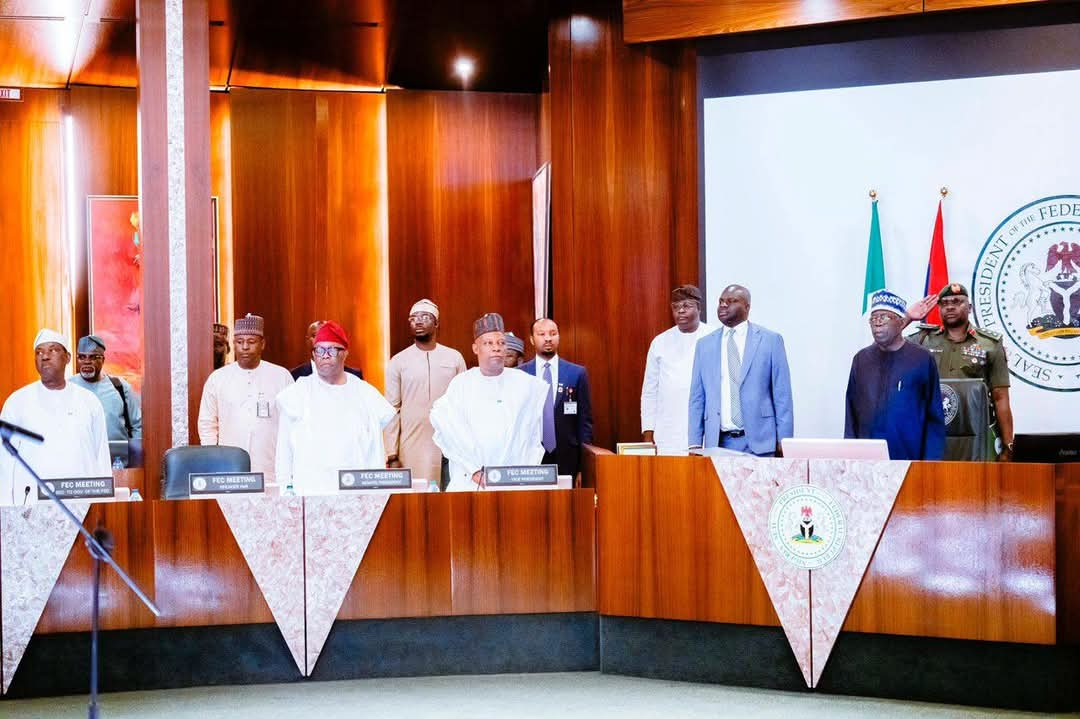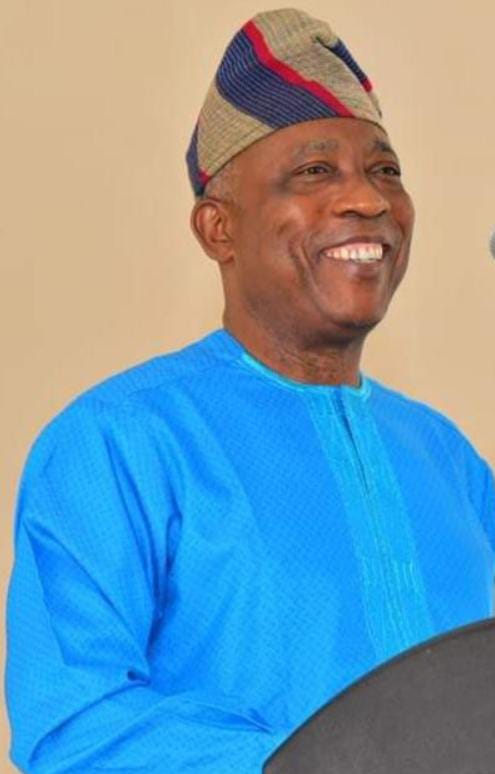President Tinubu Unveils “Nigeria First Policy”

President Bola Tinubu has unveiled “Nigeria First Policy” ending the importation of goods available in Nigeria.
President Tinubu at the Federal Executive Council on Monday 5th May, 2025, said,
“This Policy Beckons a new era of local content enterprise, self belief and national Pride” Stimulating Nigerian Industry and Nigerians.
I begin by thanking you for your service to the Nigerian people. Though we have come far, much remains to restore our nation’s prosperity.
This administration’s defining achievement is the structural reform of our economy. We have improved the business climate, removed costly subsidies, and invested in infrastructure. These reforms are already yielding results: rising reserves, increased oil output, renewed investor confidence, and multi-billion-dollar commitments from firms like Shell, Total, ExxonMobil, and SALIC.
The government has also positioned agriculture at the forefront of the administration’s priorities; recognising its pivotal role in ensuring food security, stimulating economic growth and alleviating poverty.
Following the launch of the National Sugar Master Plan II in 2024, the sugar industry, for example, is now under close scrutiny to scale up backward integration, intensify implementation efforts, and maintain disciplined focus on achieving the plan’s objectives — most critically, a major increase in domestic raw sugar production and a significant reduction in imports.
Yet, the private sector has so far not been able to embrace the opportunities our reforms and initiatives have created.
A number of factors may be responsible, but the root of the challenge is turning around a system that rewards dealmaking over real investment. We must end this. Public funds should not enrich intermediaries who export value instead of creating it.
We must foster a new business culture — bold, confident, and Nigerian. Government must lead by example. We will invest in our people and our industries by changing how we spend, procure, and build.
Going forward, Nigerian industry will take precedence in all procurement. Where local supply falls short, contracts will be structured to build capacity here. Contractors will no longer serve as intermediaries sourcing foreign goods while local factories lie idle.
We will make what we use and use what we make — not as a slogan, but as a national commitment.
Accordingly:
1. To the Bureau of Public Procurement (BPP):
– Immediately revise and enforce procurement guidelines to prioritise locally made goods and homegrown solutions.
– Create a “Local Content Compliance Framework” for all government procurements.
– Maintain a register of high-quality Nigerian manufacturers and service providers regularly engaged by the federal government.
– Deployment of Procurement officers to all MDAs should be reverted to BPP as the line agency without jeopardising efficiency.
2. To all MDAs:
– No procurement of foreign goods or services already available locally shall proceed without justification and a written waiver from BPP.
– Where no viable local option exists, contracts must include provisions for technology transfer, local production, or skills development (by way of example the provision of Quota Allocations under the Sugar Master Plan should take into consideration participants’ backward integration plans and investment in Nigeria and ensure compliance with the Master Plan).
– Conduct an immediate audit of procurement plans and submit revised versions in line with these directives.
– Breaches will attract sanctions, including cancellation of procurement and disciplinary action against responsible officers.
Let this day mark the beginning of a new era of local enterprise, self-belief, and national pride”.











